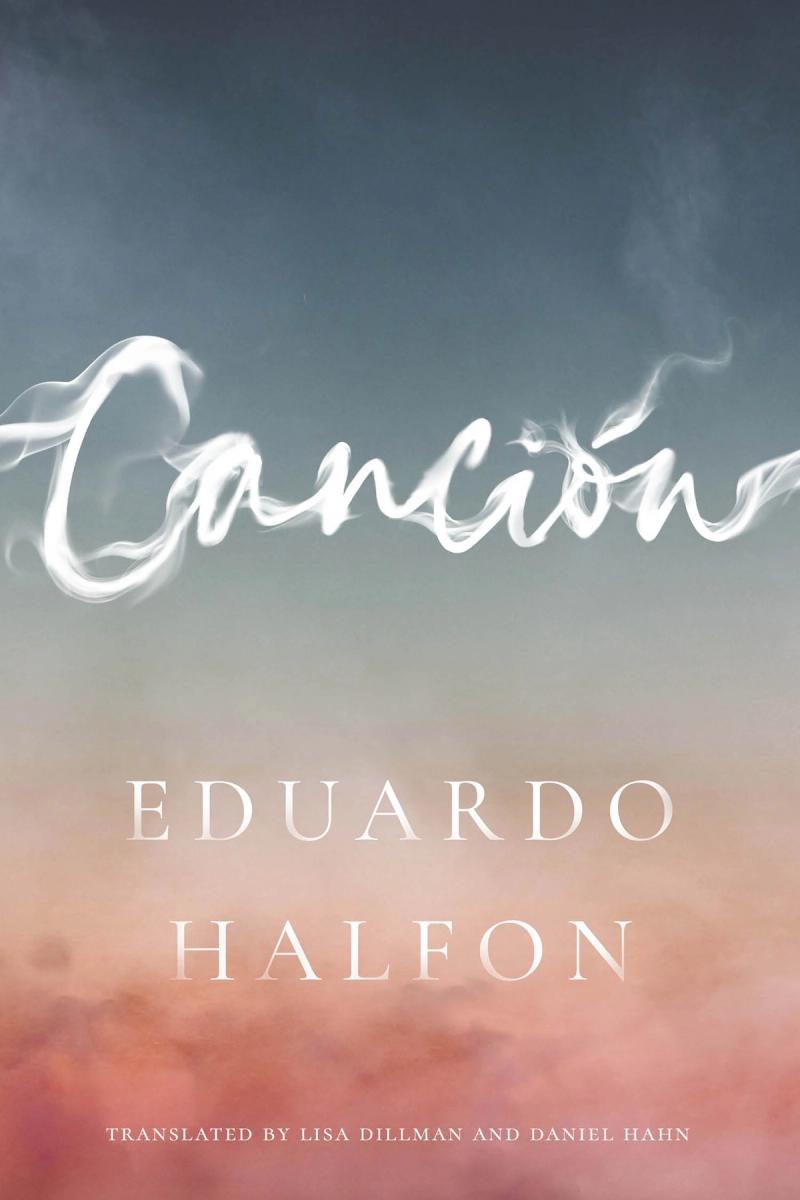[Canción] dissolves every boundary between identity and mask, home and diaspora, past and present. . . . [It is] a short novel that manages the feat of uniting the long and broken lines of history.
Canción
In Canción, Eduardo Halfon’s eponymous wanderer is invited to a Lebanese writers’ conference in Japan, where he reflects on his Jewish grandfather’s multifaceted identity. To understand more about the cold, fateful day in January 1967 when his grandfather was abducted by Guatemalan guerillas, Halfon searches his childhood memories. Soon, chance encounters around the world lead to more clues about his grandfather’s captors, including a butcher nicknamed “Canción” (or song). As a brutal and complex history emerges against the backdrop of the Guatemalan Civil War, Halfon finds echoes in the stories of a woman he meets in Japan whose grandfather survived the atomic bombing of Hiroshima.
Through exquisite prose and intricate storytelling, Halfon exposes the atrocities of war and the effect that silence and extreme violence have on family and identity.
In consultation with the author, Canción was translated from the Spanish by Lisa Dillman and Daniel Hahn, both of whom also contributed to the translations of The Polish Boxer, Monastery, and Mourning.
Berman Literature Prize Winner
Cálamo Extraordinary Prize Winner
Big Other Book Award Finalist
Dublin Literary Award Longlist
Kirkus Reviews “Best Books of the Year” selection
World Literature Today “Notable Translations of the Year” selection
Bookshop.org Editor’s Pick
Center for Fiction “Bookstore Picks” selection
Book Bungalow “International Literature Book Club” selection
Books & Books “Hispanic Heritage Month Recommended Reading” selection
Powell’s Books “New Literature in Translation” selection
Scribd “Editors’ Top Indie Book Picks” selection
Boston Public Library “National Hispanic Heritage Month” selection

Ebook
- ISBN
- 9781954276086
Paperback
- ISBN
- 9781954276079
Eduardo Halfon talks about Canción and how his entire body of work functions as a “novela en marcha—an ongoing novel” at Asymptote.
Watch Eduardo Halfon read from Canción for the Big Other Book Awards, find his Berman Literature Prize acceptance speech at Tablet Magazine, listen to him discuss the book on the Keen On and Beyond the Zero podcasts, and read excerpts in the New York Review of Books, Tablet Magazine, and Evergreen Review.
Eduardo Halfon is the author of The Polish Boxer, Monastery, Mourning, and Canción. He is the recipient of the Guatemalan National Prize in Literature, Roger Caillois Prize, José María de Pereda Prize for the Short Novel, International Latino Book Award, Edward Lewis Wallant Award, and Berman Literature Prize, among other honors. A citizen of Guatemala and Spain, Halfon was born in Guatemala City, attended school in Florida and North Carolina, and has lived in Nebraska, Spain, Paris, and Berlin.
visit author page »Praise for Canción
[Canción] addresses relevant issues in current discussion about Jewish diaspora, migration, and the armed conflict in Guatemala. . . . The writing is captivating, the characters memorable, the historical scenes evocative, and the overall reading experience enjoyable.
The narrative of Canción unfolds in an elusive middle ground where heritage becomes porous. . . . [Halfon’s] métier is family: the way we are shaped by it and the way we push back on or move beyond it; how it both supports and limits us. . . . We are who we imagine we are, in other words, which is the faith that sits at the heart of family and literature.
A revealing look at war and its effect on families.
— Linda Bond, Auntie’s Bookstore (Spokane, WA)
An irresistibly alluring mix of autobiography and fiction. . . . Beyond his gorgeous prose, Halfon’s ongoing exploration of family, history, identity, legacy, and, herein, the reverberations of war and violence across generations, is utterly compelling and deeply evocative.

